What Particle Filters Reduce Diesel Generator Black Smoke Emissions?
When it comes to reducing black smoke emissions from industrial diesel generators, particle filters play a crucial role. These advanced filtration systems are designed to capture and eliminate harmful particulate matter, significantly reducing the environmental impact of diesel-powered equipment. The most effective particle filters for combating black smoke emissions include Diesel Particulate Filters (DPFs), Diesel Oxidation Catalysts (DOCs), and Selective Catalytic Reduction (SCR) systems. Each of these technologies offers unique benefits in terms of emission reduction efficiency, fuel economy, and overall engine performance.
DPFs are particularly effective at trapping soot particles, while DOCs excel at oxidizing harmful pollutants. SCR systems, on the other hand, focus on reducing nitrogen oxide emissions. By implementing these particle filters, operators of industrial diesel generators can dramatically decrease black smoke emissions, meeting stringent environmental regulations and improving air quality in the surrounding areas. The choice of filter depends on factors such as generator size, usage patterns, and specific emission reduction goals.
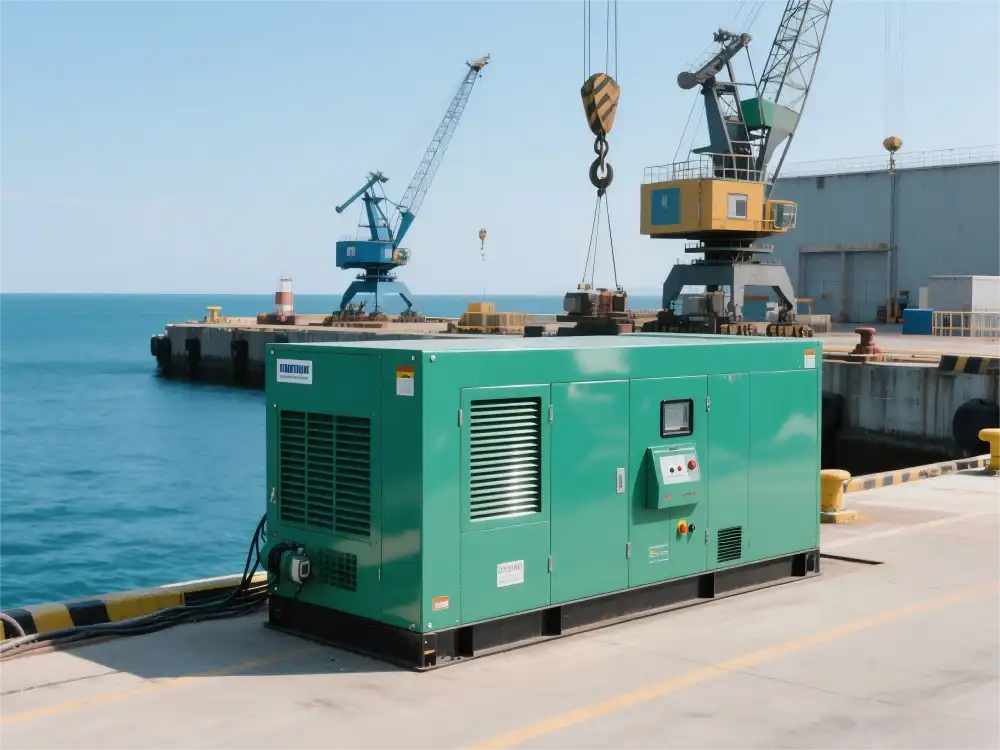
Diesel Particulate Filter (DPF) Technology Explained
Diesel Particulate Filters, or DPFs, are at the forefront of emission control technology for industrial diesel generators. These sophisticated devices are designed to capture and store particulate matter (PM) from the exhaust stream, effectively reducing black smoke emissions by up to 90%. DPFs work by forcing exhaust gases through a honeycomb-like structure made of ceramic or metallic materials, trapping soot particles as small as 0.1 microns in size.
How DPFs Operate?
The operation of a DPF involves two main processes: filtration and regeneration. During filtration, particulate matter is trapped within the filter's porous walls. As the filter accumulates soot, it undergoes regeneration, a process where trapped particles are burned off at high temperatures. This can occur passively during normal operation or actively through controlled heating of the exhaust system.
Benefits of DPF Technology
DPFs offer several advantages for industrial diesel generator applications:
- High efficiency in removing particulate matter
- Compatibility with various engine sizes and types
- Ability to meet stringent emission standards
- Long service life with proper maintenance
However, it's important to note that DPFs require regular maintenance and can impact fuel consumption due to increased back pressure on the engine.
Comparing Efficiency: Various Particle Filter Types
While Diesel Particulate Filters (DPFs) are highly effective, they are not the only option for reducing black smoke emissions from industrial diesel generators. Let's compare the efficiency of various particle filter types to help you make an informed decision for your specific needs.
Diesel Oxidation Catalysts (DOCs)
DOCs are less complex than DPFs and work by oxidizing carbon monoxide, hydrocarbons, and some particulate matter into less harmful substances. They are particularly effective at reducing visible smoke and odors.
- Efficiency: Can reduce PM by 20-50%
- Advantages: Lower cost, minimal maintenance, no regeneration required
- Limitations: Less effective than DPFs for overall PM reduction
Selective Catalytic Reduction (SCR)
SCR systems focus on reducing nitrogen oxide (NOx) emissions by using a urea-based solution called Diesel Exhaust Fluid (DEF). While not primarily designed for PM reduction, SCR can indirectly help reduce black smoke by allowing engines to run more efficiently.
- Efficiency: Can reduce NOx by up to 90%
- Advantages: Improves fuel efficiency, reduces overall emissions
- Limitations: Requires regular DEF refills, more complex system
Combination Systems
Many modern industrial diesel generators use a combination of these technologies to achieve optimal emission reduction. For example, a DPF-DOC combination can provide excellent PM reduction while also addressing other pollutants.
When selecting a particle filter system for your industrial diesel generator, consider factors such as emission reduction requirements, operational conditions, and maintenance capabilities. Each type of filter offers unique benefits, and the best choice often depends on your specific application and environmental goals.
Maintenance Tips for Optimal Particle Filter Performance
Proper maintenance is crucial for ensuring the longevity and efficiency of particle filters in industrial diesel generators. By following these maintenance tips, you can optimize filter performance and reduce black smoke emissions effectively.
Regular Inspection and Cleaning
Periodic inspection and cleaning of particle filters are essential to prevent clogging and maintain optimal performance. For DPFs, this may involve:
- Visual inspections for damage or excessive soot buildup
- Monitoring back pressure readings to identify potential blockages
- Scheduled cleaning or regeneration cycles based on manufacturer recommendations
Proper Fuel and Oil Management
The quality of fuel and oil used in your industrial diesel generator can significantly impact particle filter performance. Consider the following:
- Use high-quality, low-sulfur diesel fuel to reduce ash accumulation in filters
- Adhere to recommended oil change intervals to minimize oil consumption and ash production
- Consider fuel additives designed to improve combustion and reduce particulate matter
Monitor and Address Engine Performance Issues
Engine problems can lead to increased emissions and premature filter failure. Regular engine maintenance should include:
- Checking and adjusting fuel injection timing and pressure
- Inspecting and replacing worn components that may affect combustion efficiency
- Addressing any issues that cause excessive oil consumption or blow-by
Keep Accurate Maintenance Records
Maintaining detailed records of filter inspections, cleanings, and replacements helps track performance over time and anticipate maintenance needs. This proactive approach can prevent unexpected downtime and ensure consistent emission control.
By implementing these maintenance practices, operators can extend the life of their particle filters and maintain optimal emission reduction performance in their industrial diesel generators.
Jlmech, a leading manufacturer of industrial diesel generators, understands the importance of efficient emission control systems in modern power solutions. Our range of generators, including the silent diesel generator 437kVA, incorporates advanced particle filtration technologies to meet and exceed environmental standards.
The Jlmech silent diesel generator 437kVA is a prime example of how cutting-edge emission control can be seamlessly integrated into high-performance power solutions. With a power output of 437kVA (350 kW) and noise levels below 75 dB at 7 meters, this generator is ideal for applications requiring both power reliability and environmental consciousness.
Key features of the Jlmech 437kVA generator include:
- Rated AC Voltage: 380/400V
- Frequency: 50 Hz (60 Hz customization available)
- Three-phase output for industrial applications
- Six-cylinder engine with water cooling for optimal performance
- Electric starting for ease of use
- Compact dimensions: 3250mm x 1200mm x 1800mm
- CE, ISO8528, and GB/T 2820-9 certifications
This generator is engineered to deliver uninterrupted power in noise-sensitive environments such as hospitals, urban construction sites, and data centers. Its robust design ensures reliable operation in extreme temperatures and high-humidity conditions, making it suitable for remote mining operations or tropical climates.
Jlmech's commitment to emission reduction is evident in the advanced acoustic enclosures that not only reduce noise pollution but also contribute to a 20% improvement in fuel efficiency. The generator meets EU Stage V and EPA Tier 4 emission standards, ensuring global compliance and deployability.
Conclusion
Effective particle filtration is crucial for reducing black smoke emissions from industrial diesel generators. By understanding the various filter types available and implementing proper maintenance practices, operators can significantly improve air quality and meet stringent environmental regulations. Whether you choose a DPF, DOC, SCR system, or a combination of technologies, the key is to select a solution that aligns with your specific operational needs and emission reduction goals.
For businesses seeking reliable, environmentally friendly power solutions, Jlmech offers a range of industrial diesel generators equipped with advanced emission control systems. Our expertise in power generation, coupled with a commitment to innovation and sustainability, makes us an ideal partner for your power needs.
Are you looking for an industrial diesel generator that combines power, efficiency, and environmental responsibility? Contact Jlmech today to explore our range of solutions tailored to your specific requirements. With over 29 years of experience, ISO 9001/14001 certifications, and a global network of 26 overseas offices, we're equipped to provide you with robust, fuel-efficient power solutions that meet the demands of modern industries.
Don't compromise on power or environmental standards. Reach out to our team at skala@whjlmech.com to discuss how our advanced generator technologies can benefit your operations while reducing your environmental footprint. Let Jlmech power your success with clean, efficient, and reliable energy solutions.
References
1. Johnson, T. V. (2019). Review of Diesel Emissions and Control. SAE International Journal of Fuels and Lubricants, 12(1), 35-66.
2. Majewski, W. A., & Khair, M. K. (2020). Diesel Emissions and Their Control. SAE International.
3. Environmental Protection Agency. (2021). Diesel Particulate Filter General Information. Technical Bulletin.
4. Liu, Z. G., et al. (2018). Comparison of Particle Emissions from Diesel Engines Operating with Different Aftertreatment Systems. Emission Control Science and Technology, 4(2), 73-82.
5. Mayer, A., et al. (2019). Best Available Technology for Emission Reduction of Small Diesel Engines. Journal of Earth Sciences and Geotechnical Engineering, 9(4), 17-32.
6. Guan, B., et al. (2020). Review of the state-of-the-art of exhaust particulate filter technology in internal combustion engines. Journal of Environmental Management, 262, 110354.
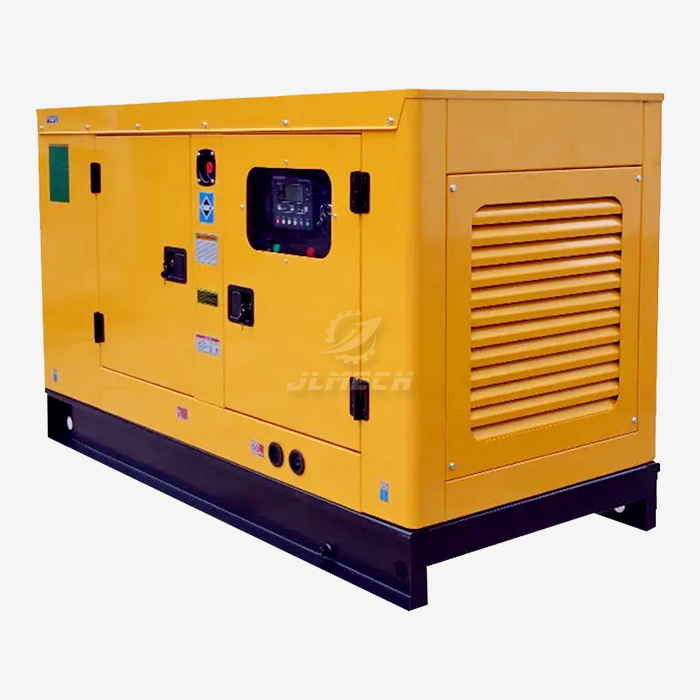 VIEW MORE40kVA Silent Diesel Generator
VIEW MORE40kVA Silent Diesel Generator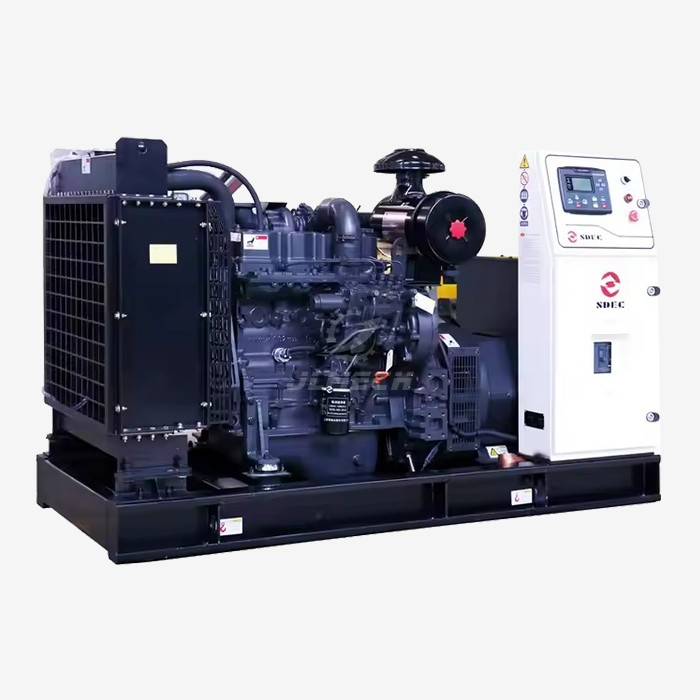 VIEW MORECustomized 80KW diesel generator
VIEW MORECustomized 80KW diesel generator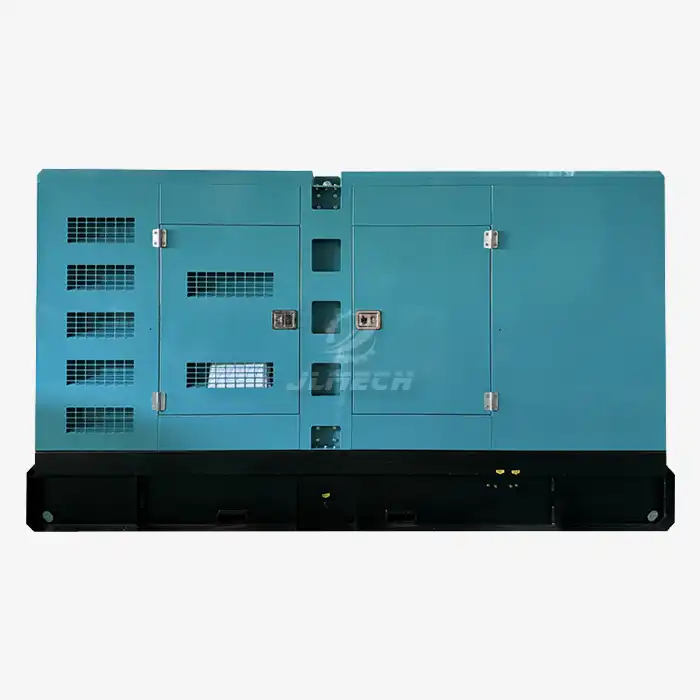 VIEW MORENew 4 Cylinders Water Cooled Diesel Generator Set
VIEW MORENew 4 Cylinders Water Cooled Diesel Generator Set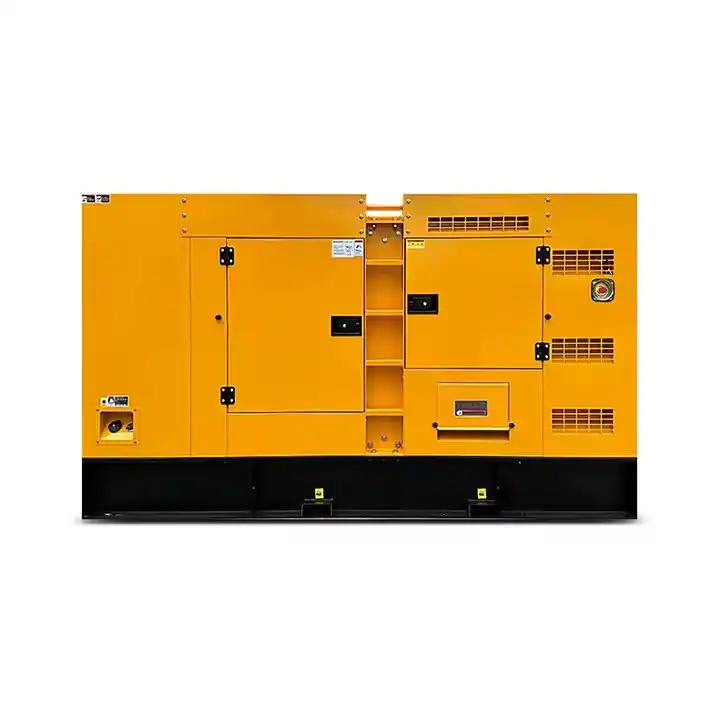 VIEW MOREDiesel Power Generator
VIEW MOREDiesel Power Generator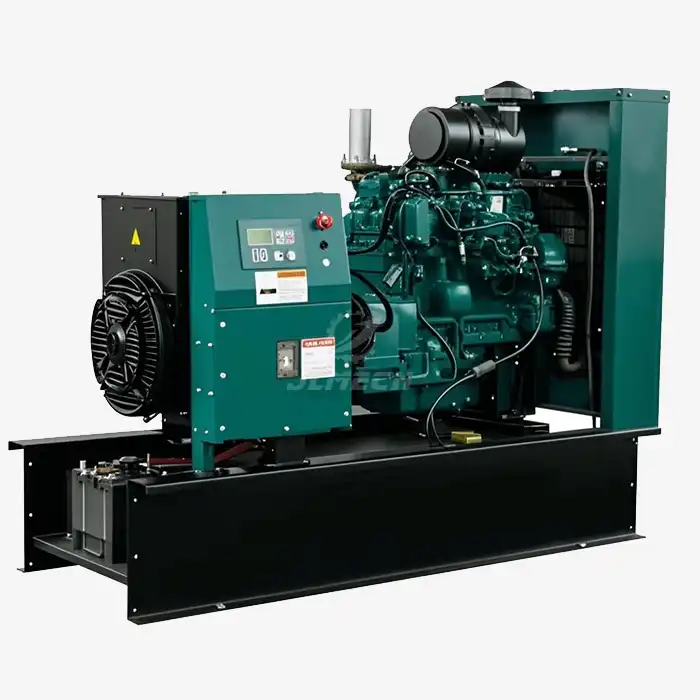 VIEW MOREdiesel generator kubota
VIEW MOREdiesel generator kubota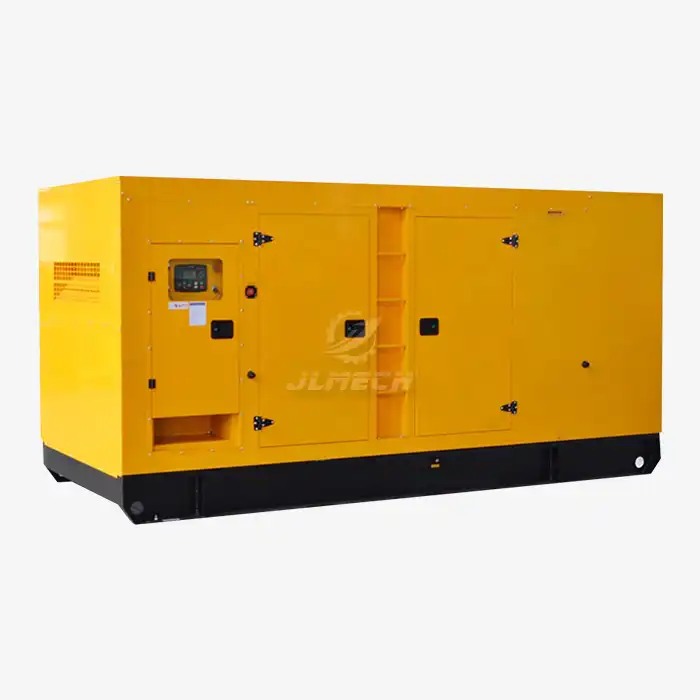 VIEW MORElargest diesel generator
VIEW MORElargest diesel generator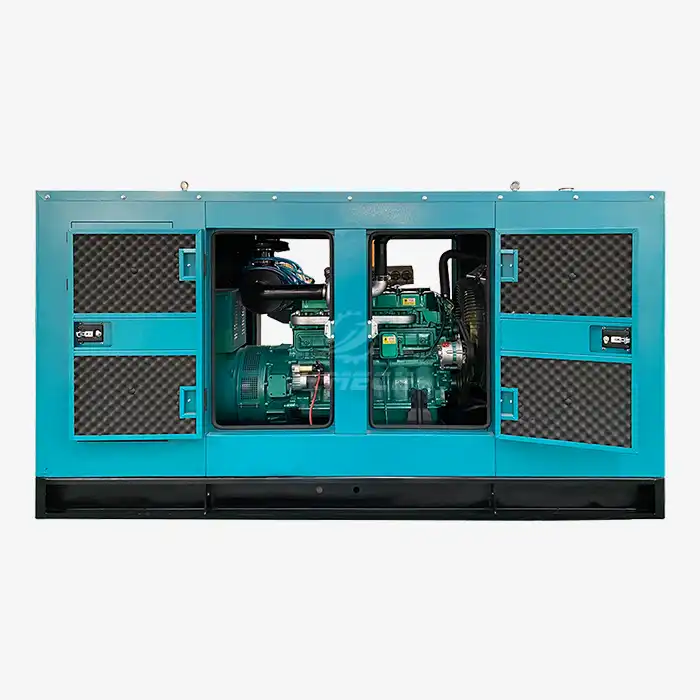 VIEW MORE150kw diesel generator noiseless
VIEW MORE150kw diesel generator noiseless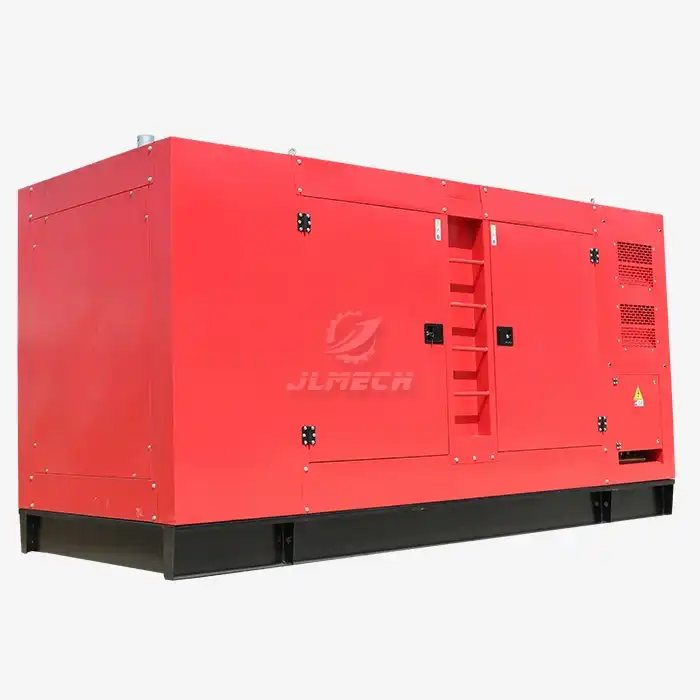 VIEW MOREperkins silent diesel generator
VIEW MOREperkins silent diesel generator



